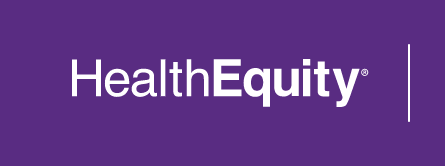Tax season is easier when you’re prepared. I’m happy to share several tax resources so you’re equipped with answers to help your employees stay informed. If you regularly get questions about Health Spending Account (HSA) tax filing, this article is for you. I’ll provide a high-level overview of filing information for spending accounts, point out where to find forms, and direct you to a recorded webinar to share with your teams. Let’s get started!
Which spending accounts have tax reporting requirements?
Anyone with an HSA needs to report HSA contributions and distributions. HealthEquity sends members their HSA tax forms in their preferred format—mail or electronic.
Those with a healthcare Flexible Spending Account (FSA), Health Reimbursement Account (HRA), or Commuter Benefits do not need to report on their tax returns, and they won’t receive any tax documentation through HealthEquity.
What resources can I share with employees to be ready for HSA tax filing?
Good news! A recorded webinar is available— HSA tax filing: What to expect. People can access the recording at a time that’s most convenient for their schedule to learn about important HSA forms, making contributions, filing deadlines, and more. Additional videos are also available. Check out our other on-demand employee learning opportunities.
Can account holders make HSA contributions for the previous tax year?
Great question. In fact, it’s one of the most common questions our teams get at tax time—making additional HSA contributions. Yes, people can make contributions to their HSA for the previous tax year up until the tax filing deadline. This year, that deadline is April 15, 2024.
This is important information to share with your employees because HSA contributions are tax deductible. Making HSA contributions is a way to lower their annual taxable income and build health savings for the future. Just be sure to confirm the maximum annual contribution limits.
What if people accidentally put too much money in their HSA?
This is also a common question. If someone contributes too much into their HSA it can be fixed through an excess distribution process. I covered this in a short video I made for our HSA Squad.
If you find these videos helpful, you can explore our HSA Squad library on topics like covering dependents, catch-up contributions, and more.
Where can people find HSA tax forms?
Everything taxpayers need to know to file HSA contributions and distributions is in our Tax Center. It’s easy to find HSA tax forms—1099-SA, 5498-SA, 8889, and more. HealthEquity account holders can simply log in to their account to access their tax forms.
Wishing you and your employees a productive spring and an easy HSA tax filing experience
Thank you for taking the time and care to support your employees. It’s always important to stay informed about the ins and outs of HSA reporting requirements during tax season, and all year long. It may also be helpful to browse any of our recent compliance updates. Our knowledgeable staff help employers like you to keep current on benefits rules and legislation in a rapidly changing environment. Happy tax season!
HealthEquity does not provide legal, tax or financial advice.



